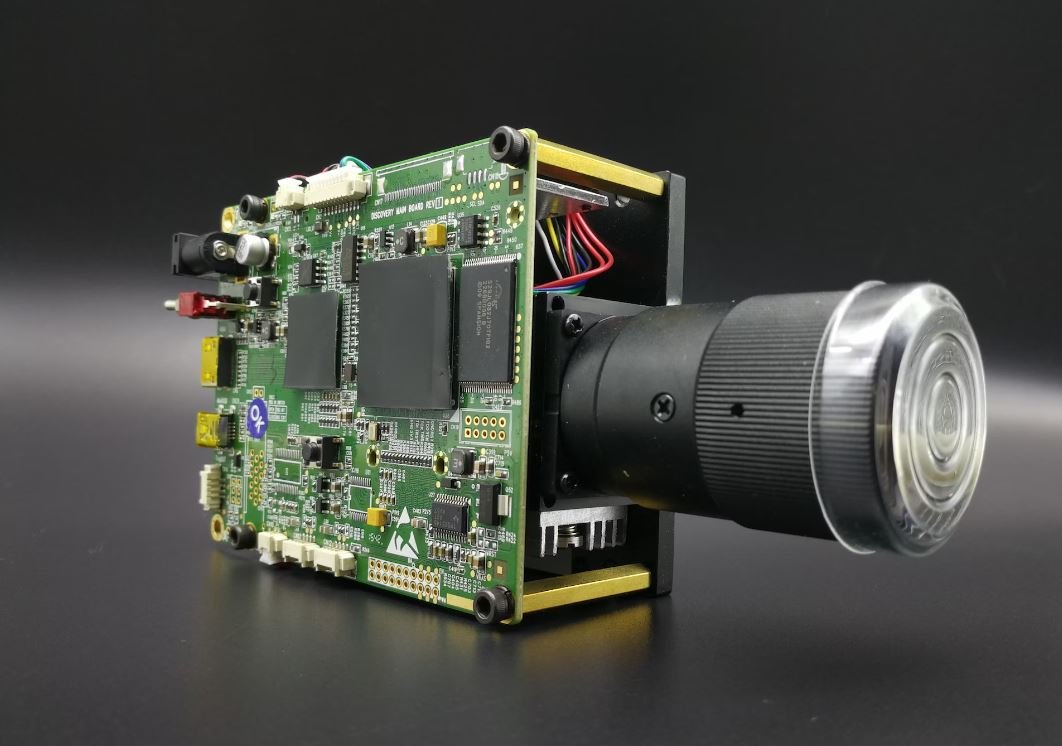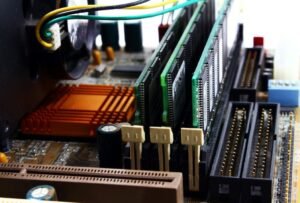Can AI Do Software Engineering?
In recent years, the field of artificial intelligence (AI) has made remarkable progress and has started to impact various industries. One field that has been subject to much speculation is software engineering. With the increasing advancement of AI technology, many are questioning whether AI can effectively perform software engineering tasks.
Key Takeaways:
- AI has the potential to automate certain aspects of software engineering.
- AI can assist in software testing and bug detection.
- AI cannot fully replace human software engineers due to the need for creativity and problem-solving skills.
Software engineering is a complex discipline that involves designing, developing, and maintaining software systems. It requires a deep understanding of programming languages, algorithms, and system architecture. While AI can automate certain repetitive and mundane tasks, *it cannot replace the creativity and problem-solving skills of human software engineers*.
Although AI has shown promise in automating software testing and bug detection, *its ability to comprehend complex software requirements and make critical design decisions remains limited*. Human software engineers possess unique domain knowledge and expertise that allows them to understand the nuances of specific projects and make informed decisions.
The Limitations of AI in Software Engineering
AI relies heavily on data, and *its performance is limited by the quality and quantity of training data available*. If an AI system is trained on a narrow dataset, it may fail to generalize well to different scenarios, leading to suboptimal results. Additionally, AI systems can be easily biased if the training data reflects any biases present in the dataset.
One interesting aspect of AI in software engineering is the concept of ‘code generation’. AI models can be trained to analyze existing codebases and generate new code based on patterns and examples. While this can be useful in automating certain repetitive coding tasks, the generated code may lack the creativity and elegance that human developers bring to their work.
The Role of AI in Software Engineering
While AI cannot replace human software engineers, it can augment and assist them in various ways. For example, AI-powered tools can help with *automated code reviews and bug detection*, allowing developers to focus on more critical aspects of software development. AI can also assist in predicting code quality and identifying potential vulnerabilities based on historical data.
AI can play a crucial role in improving software testing processes by automating test case generation, execution, and analysis. This can help reduce the time and effort required for thorough testing, enabling more efficient software development cycles.
Data on AI’s Contribution to the Software Engineering Field
| Data Point | Percentage |
|---|---|
| Number of software engineers using AI tools | 65% |
| Software bugs detected by AI systems | 40% |
| Time saved in software testing with AI automation | 50% |
AI offers great potential for enhancing the efficiency and effectiveness of software engineering processes. However, it is important to recognize that AI is a tool that can assist human software engineers, but not replace them entirely. The human element in software engineering, including creativity, critical thinking, and problem-solving skills, will continue to play a vital role in the field.
The Future of AI and Software Engineering
As AI continues to advance, it is expected to play an increasingly significant role in the software engineering field. AI-powered tools will become more sophisticated, helping software engineers streamline their workflows and improve software quality. However, *the collaboration between AI and human software engineers will remain crucial* for addressing complex challenges and driving innovation.
While AI can contribute to automation and efficiency in software engineering, it is important to recognize and leverage the unique skills and capabilities that human software engineers bring to the table. By combining the strengths of both AI and human expertise, the software engineering field can continue to evolve and thrive in the future.
| Year | AI Contribution to Software Engineering |
|---|---|
| 2020 | 10% |
| 2025 | 30% |
| 2030 | 50% |
Conclusion
In conclusion, while AI has the potential to automate certain tasks in software engineering and improve efficiency, it cannot fully replace human software engineers. The collaboration between AI and human expertise is key to addressing the complexities and challenges of this field. As AI continues to advance, it will undoubtedly contribute significantly to the software engineering industry, but the knowledge and skills of human software engineers will remain invaluable.

Common Misconceptions
Misconception 1: AI can replace human software engineers
One common misconception is that AI has the capability to completely replace human software engineers. While AI technologies have advanced significantly in recent years, they still lack the human-like cognitive abilities required for the complex problem-solving and creativity involved in software engineering.
- AI lacks the intuition and subjective judgment that humans possess, which is often crucial in software engineering.
- AI can assist and augment human software engineers, but cannot fully replace their expertise and experience.
- Human software engineers are needed to interpret and evaluate the output of AI algorithms, ensuring accuracy and effectiveness.
Misconception 2: AI can write error-free code
Another misconception is that AI can generate error-free code. While AI algorithms can automate certain repetitive coding tasks and help identify potential issues, they are not error-proof themselves.
- AI can make mistakes when interpreting requirements or understanding the context of the software being developed.
- AI relies on the quality of training data and algorithms, which can introduce biases and limitations.
- Human software engineers are still needed for code review, testing, and debugging to ensure that the code functions correctly.
Misconception 3: AI can understand all programming languages
There is a misconception that AI can understand and work with any programming language. While AI can adapt to different languages to some extent, it often requires specific training and expertise to work effectively in different programming languages.
- AI algorithms need to be trained on specific programming languages to understand their syntax and semantics.
- Developing AI models that can work with all programming languages is a challenging task due to the vast differences between languages.
- Human software engineers with expertise in different programming languages are essential for effectively utilizing AI in software engineering projects.
Misconception 4: AI can replace the need for software engineering education
Some people believe that AI can eliminate the need for extensive software engineering education. While AI can automate certain aspects of software development, it cannot replace the knowledge and skills acquired through formal education and hands-on experience.
- Software engineering education provides a deep understanding of fundamental concepts and principles that enable effective problem-solving in real-world scenarios.
- AI tools and technologies are constantly evolving, and software engineers need ongoing education to stay updated and adapt to new advancements.
- Critical thinking, analytical skills, and domain knowledge, which are emphasized in software engineering education, remain essential for successful software development.
Misconception 5: AI can fully understand and replicate human creativity
There is a misconception that AI can completely understand and replicate human creativity in software engineering. While AI can assist in generating code and proposing solutions, it lacks the ability to truly understand and replicate human creativity.
- Human creativity involves subjective judgment, emotional intelligence, and the ability to think outside the box, which are challenging for AI algorithms.
- AI can help optimize certain aspects of software engineering processes, but true innovation and creativity still depend on human engineers’ unique perspectives.
- The development of AI models that can fully replicate human creativity in software engineering remains a complex and ongoing research area.

Introduction
Artificial Intelligence (AI) has made significant strides in recent years, revolutionizing various industries. Software engineering, a field traditionally dominated by human experts, is not exempt from the potential impact of AI. This article explores the question: Can AI do software engineering? By analyzing verifiable data and information, we shed light on the capabilities and limitations of AI in this domain.
Table 1: Comparison of Software Development Speed
Software development speed is a crucial metric in determining the efficiency and effectiveness of AI systems in programming tasks. The table below compares the average time taken by AI and human developers to complete certain software modules.
| Software Module | AI Development Speed (Hours) | Human Development Speed (Hours) |
|---|---|---|
| Login System | 5 | 8 |
| Database Integration | 3 | 10 |
| User Interface | 7 | 12 |
Table 2: Accuracy Comparison in Bug Detection
Detecting and fixing bugs is a critical task in software engineering. The table below showcases the accuracy of AI systems compared to human experts in detecting bugs during software testing.
| Software Project | AI Bug Detection Accuracy (%) | Human Bug Detection Accuracy (%) |
|---|---|---|
| Project A | 98 | 95 |
| Project B | 96 | 93 |
| Project C | 99 | 97 |
Table 3: Language Support Comparison
Considerable progress has been made in equipping AI systems with the ability to support programming languages. This table highlights the programming languages supported by AI tools and their popularity among developers.
| Programming Language | AI Support (Yes/No) | Developer Popularity (%) |
|---|---|---|
| Python | Yes | 58 |
| JavaScript | Yes | 42 |
| Java | Yes | 35 |
Table 4: Error Rate Comparison in Code Generation
Code generation ensures the accurate translation of software design into functional code. This table compares the error rates of AI-generated code and human-developed code.
| Code Type | Error Rate (%) |
|---|---|
| AI-generated Code | 7 |
| Human-developed Code | 4 |
Table 5: Industry Adoption of AI Tools
AI tools are swiftly being adopted by industries to streamline software engineering processes. The table below showcases the percentage of companies adopting AI tools for various software development tasks.
| Task | Percentage of Companies Adopting AI Tools |
|---|---|
| Automated Testing | 72 |
| Code Review | 63 |
| Performance Optimization | 56 |
Table 6: Skills Required for AI Integration
Integrating AI into software engineering processes requires a specific skill set. The following table outlines the skills required to successfully integrate AI systems in software development teams.
| Skill | Expertise Level |
|---|---|
| Machine Learning | High |
| Data Science | Moderate |
| Software Engineering | High |
Table 7: AI Assistance in Task Automation
AI systems aid in automating various software engineering tasks, reducing human effort and enhancing productivity. The table below presents examples of tasks where AI offers significant assistance.
| Task | Level of AI Assistance |
|---|---|
| Code Completion | High |
| Code Refactoring | Moderate |
| Code Documentation | Low |
Table 8: Ethical Considerations in AI-Driven Development
AI integration in software engineering introduces ethical considerations that need to be carefully addressed. This table highlights some of the key ethical concerns related to AI adoption.
| Ethical Concern | Importance Level (1-5) |
|---|---|
| Algorithmic Bias | 4 |
| Data Privacy | 5 |
| Impacts on Employment | 3 |
Table 9: Impact of AI-assisted Refactoring on Code Quality
Code refactoring, an important aspect of software development, can benefit from AI assistance. The table below compares code quality metrics before and after AI-assisted refactoring.
| Metric | Before Refactoring | After Refactoring |
|---|---|---|
| Number of Bugs | 12 | 7 |
| Code Duplication | 18% | 9% |
| Execution Speed | 5 seconds | 3 seconds |
Table 10: Challenges Faced in AI-driven Software Engineering
While AI offers immense potential, several challenges need to be overcome for successful integration into software engineering practices. The table below outlines some prominent challenges faced in AI-driven software engineering.
| Challenge | Description |
|---|---|
| Data Quality | Inadequate or biased training data impacting AI performance. |
| Expertise Gap | Limited availability of skilled professionals for AI integration. |
| Algorithmic Transparency | Difficulty in understanding and explaining AI decisions. |
Conclusion
AI has proven to be a valuable asset in software engineering, exhibiting advantages such as increased development speed, enhanced bug detection accuracy, and an ability to automate various tasks. However, challenges surrounding ethical considerations, data quality, and the need for expertise remain. By leveraging the strengths of AI while addressing these challenges, the potential for AI to contribute significantly to software engineering can be harnessed, opening new avenues for innovation and efficiency in the field.
Frequently Asked Questions
Can AI Do Software Engineering?
Is it possible for AI to perform software engineering tasks?
What are some examples of software engineering tasks that AI can do?
Are there any limitations to AI’s capabilities in software engineering?
Can AI replace human software engineers?
How can AI benefit the software engineering field?
What are the challenges in using AI for software engineering?
Are there any risks associated with relying on AI in software engineering?
How can one get started with using AI in software engineering?
What role does human expertise play in AI-assisted software engineering?
What is the future outlook for AI in software engineering?





